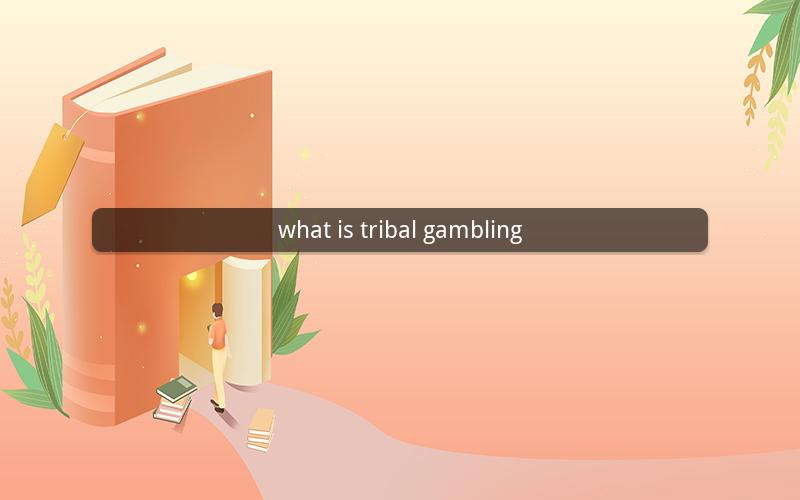
Table of Contents
1. Introduction to Tribal Gambling
2. Historical Background of Tribal Gambling
3. Legal Framework of Tribal Gambling
4. Types of Tribal Casinos
5. Economic Impact of Tribal Casinos
6. Social and Cultural Implications
7. Challenges and Controversies
8. Future Outlook of Tribal Gambling
1. Introduction to Tribal Gambling
Tribal gambling refers to the gambling activities conducted by Native American tribes on their reservations. This form of gambling has gained significant popularity in recent years, offering a unique blend of cultural heritage and entertainment. In this article, we will delve into the various aspects of tribal gambling, including its history, legal framework, types of casinos, economic impact, social and cultural implications, challenges, and future outlook.
2. Historical Background of Tribal Gambling
The history of tribal gambling dates back to the early 20th century when some tribes began operating small gambling operations on their reservations. However, it was not until the late 1980s that tribal gambling gained national attention with the passage of the Indian Gaming Regulatory Act (IGRA) in 1988. This act allowed tribes to offer certain forms of gambling on their reservations, provided they entered into a compact with the state.
3. Legal Framework of Tribal Gambling
The legal framework surrounding tribal gambling is complex and varies from state to state. The IGRA establishes a three-tiered regulatory system, with tribes having the primary responsibility for regulating their own gaming activities. The act also requires tribes to enter into a compact with the state in which their reservation is located, outlining the types of games that can be offered and the revenue-sharing arrangements.
4. Types of Tribal Casinos
Tribal casinos offer a wide range of gambling options, including slot machines, table games, poker, and bingo. Some casinos also feature non-gaming amenities such as restaurants, hotels, and entertainment venues. The types of games offered vary depending on the tribe and the state's regulations.
5. Economic Impact of Tribal Casinos
Tribal casinos have had a significant economic impact on Native American communities and surrounding areas. They provide jobs, generate revenue, and contribute to the local economy. According to the National Indian Gaming Commission, tribal gaming generated over $30 billion in revenue in 2019, making it a vital source of income for many tribes.
6. Social and Cultural Implications
Tribal gambling has raised concerns about its social and cultural implications. Some argue that it can lead to increased rates of gambling addiction, crime, and other social problems. Others contend that it preserves cultural traditions and provides an opportunity for tribes to promote their heritage.
7. Challenges and Controversies
Tribal gambling has faced numerous challenges and controversies over the years. One of the main issues is the conflict between tribes and state governments over the scope of tribal sovereignty and the interpretation of the IGRA. Additionally, there have been concerns about the potential for corruption and the exploitation of tribal resources.
8. Future Outlook of Tribal Gambling
The future of tribal gambling remains uncertain. As more states consider legalizing gambling, the competition between tribal and commercial casinos is likely to increase. Additionally, ongoing debates about tribal sovereignty and the impact of gambling on Native American communities will continue to shape the future of tribal gaming.
---
10 Questions and Answers
1. What is the main purpose of tribal gambling?
- The main purpose of tribal gambling is to generate revenue for tribes, provide employment opportunities, and promote cultural heritage.
2. How does tribal gambling differ from commercial gambling?
- Tribal gambling is conducted by Native American tribes on their reservations, while commercial gambling is operated by private entities.
3. What types of games can be offered at tribal casinos?
- Tribal casinos can offer a variety of games, including slot machines, table games, poker, and bingo.
4. How does tribal gambling impact the local economy?
- Tribal gambling can generate significant revenue for tribes and surrounding areas, creating jobs and boosting the local economy.
5. What are the social and cultural implications of tribal gambling?
- Tribal gambling has raised concerns about increased rates of gambling addiction, crime, and other social problems, as well as the potential for preserving cultural traditions.
6. What is the Indian Gaming Regulatory Act (IGRA)?
- The IGRA is a federal law that allows tribes to offer certain forms of gambling on their reservations, provided they enter into a compact with the state.
7. How do tribes regulate their own gaming activities?
- Tribes have the primary responsibility for regulating their own gaming activities, often with the assistance of a gaming commission or regulatory body.
8. What are some of the challenges faced by tribal gambling?
- Challenges include conflicts with state governments over tribal sovereignty, concerns about social and cultural implications, and potential for corruption.
9. How has tribal gambling changed over the years?
- Tribal gambling has evolved from small, informal operations to large, modern casinos with a variety of amenities.
10. What is the future outlook for tribal gambling?
- The future of tribal gambling remains uncertain, with ongoing debates about tribal sovereignty, the impact of gambling on Native American communities, and increased competition from commercial casinos.